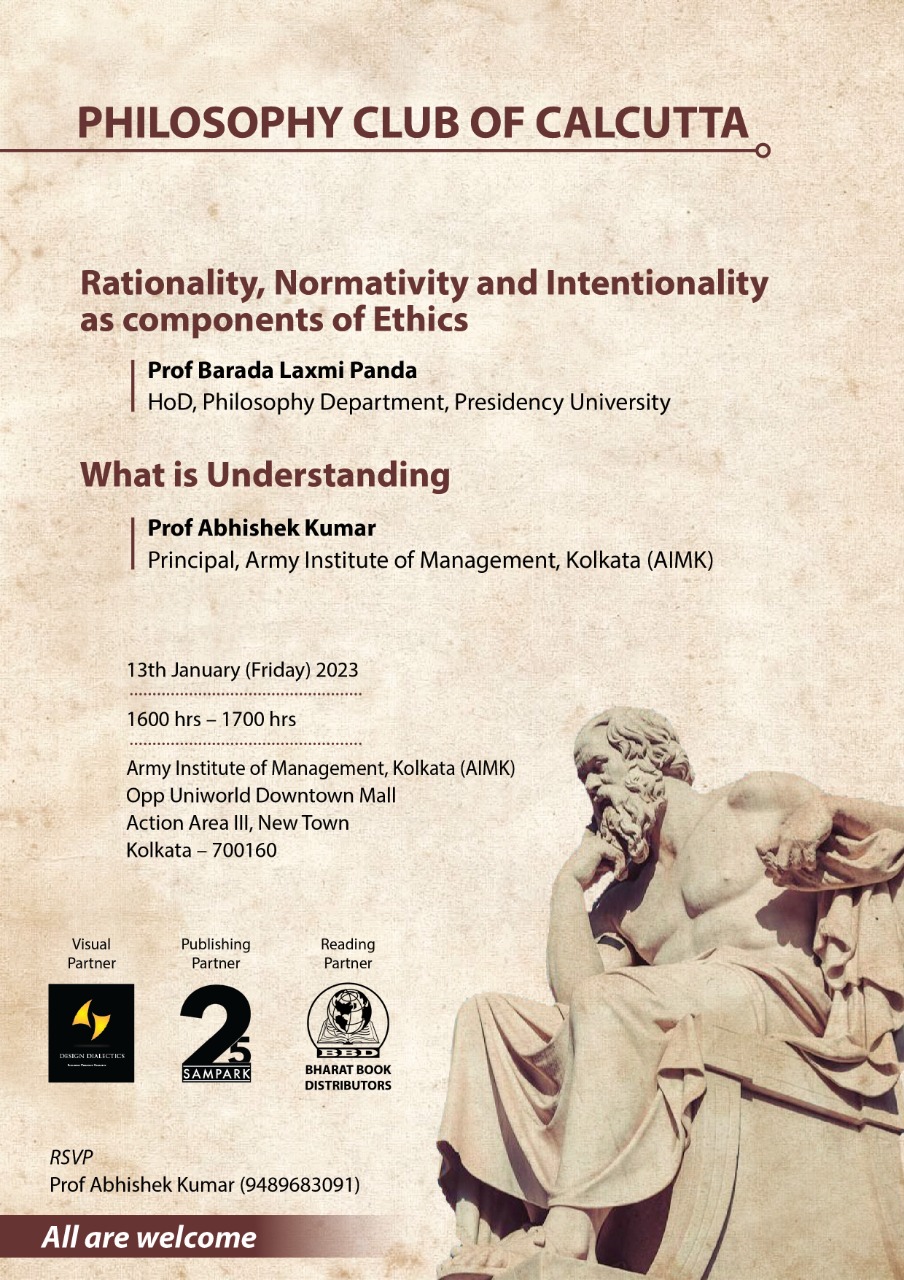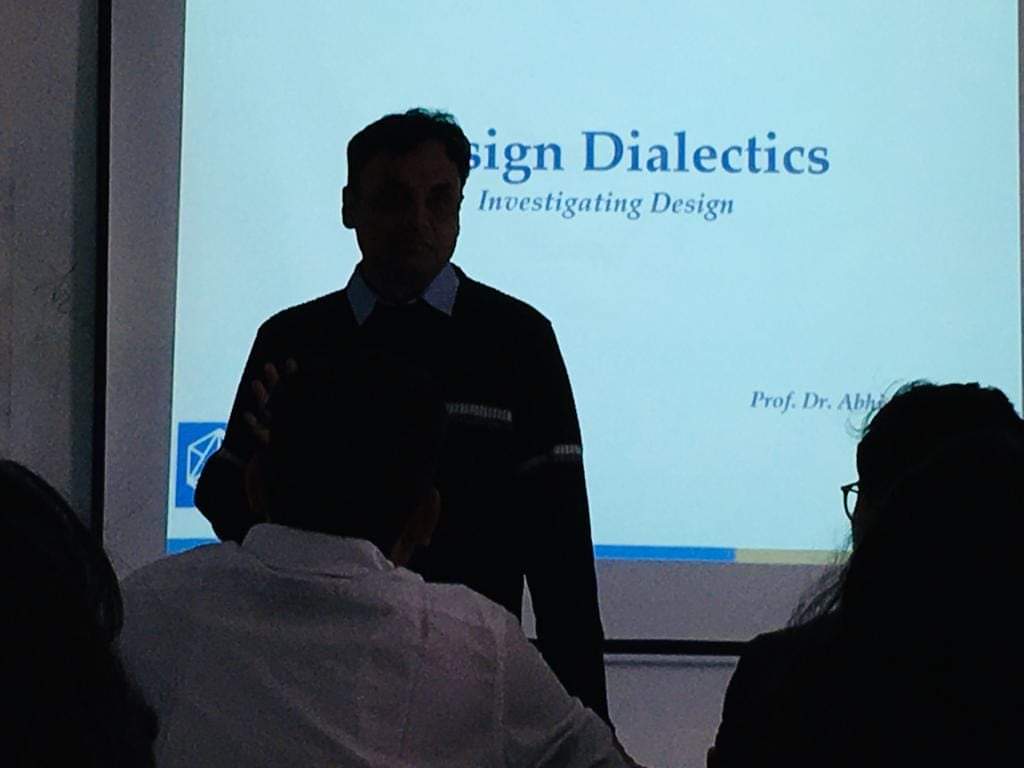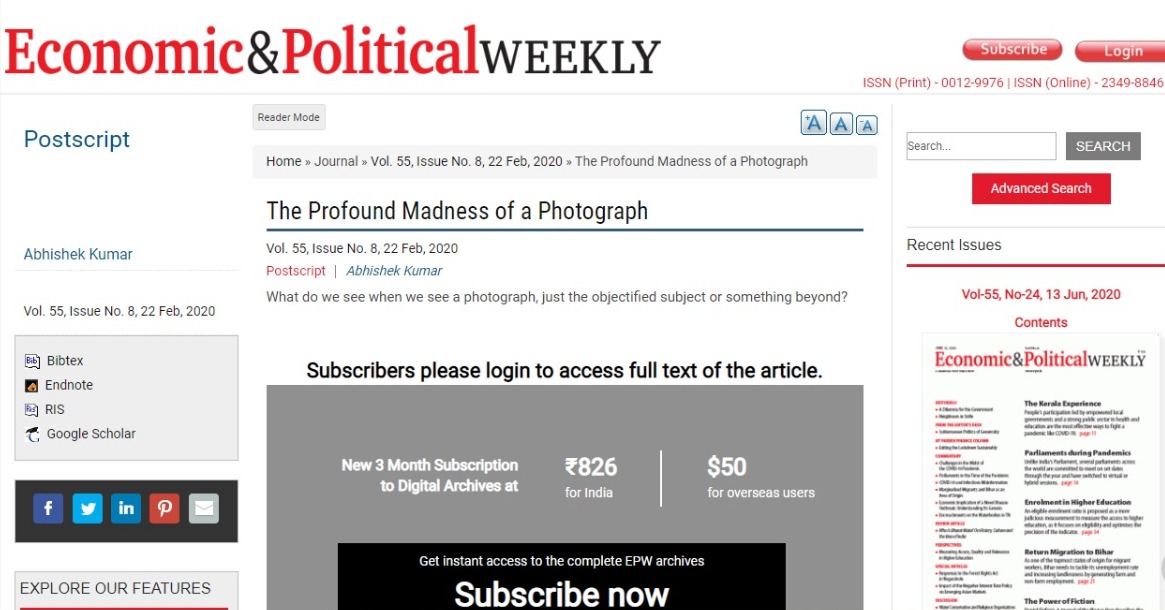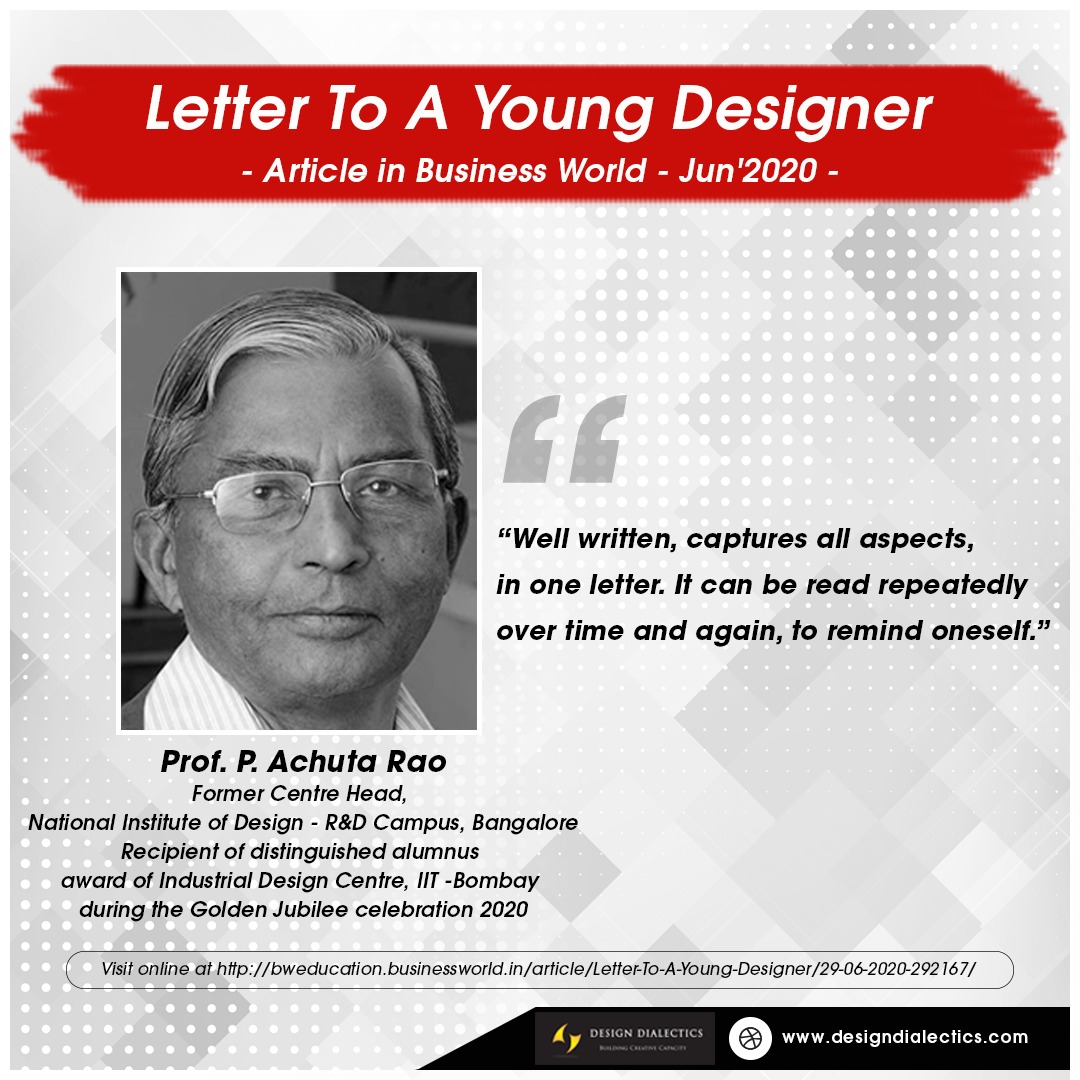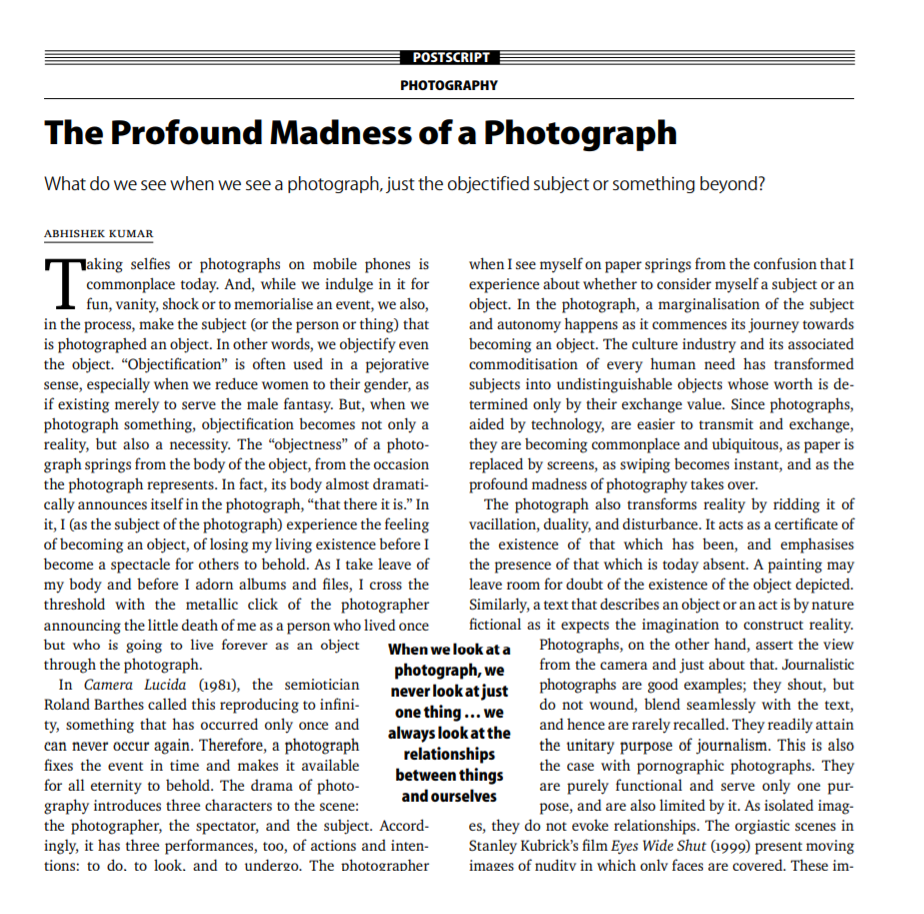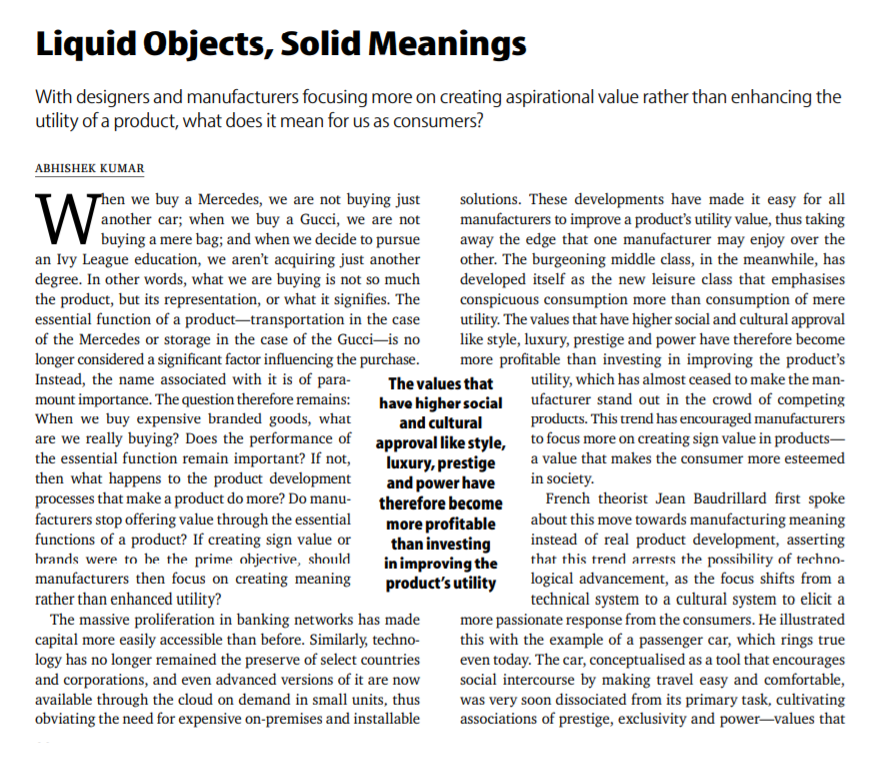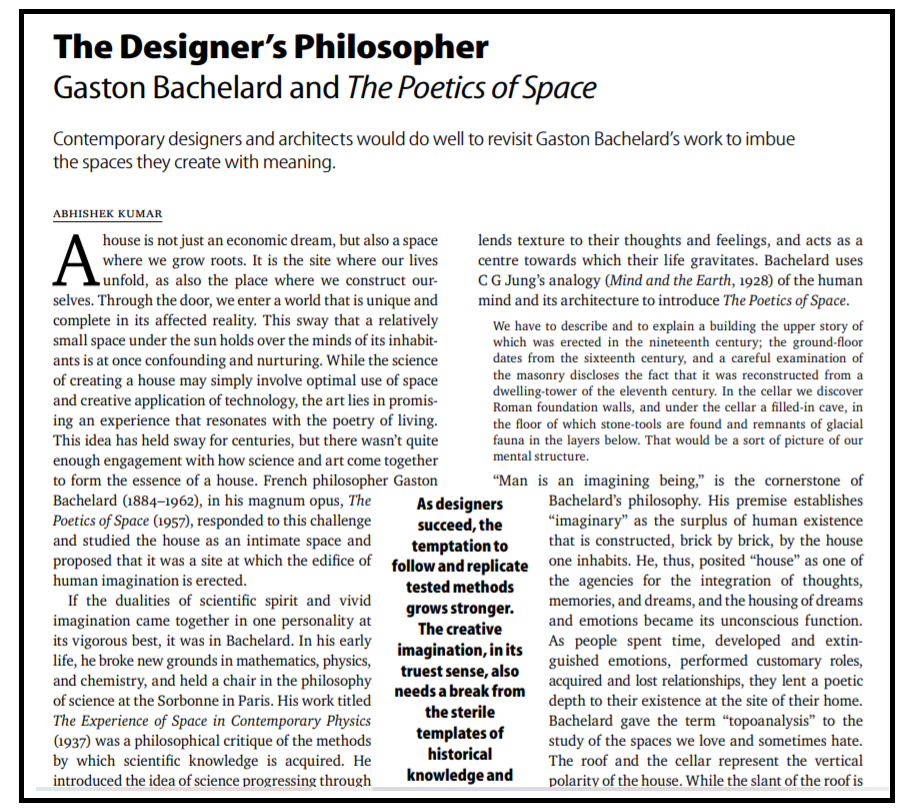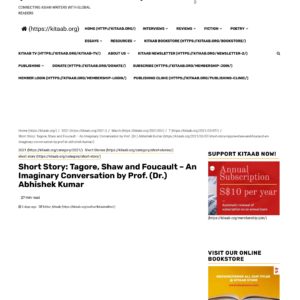Design Dialectics
Design Dialectics explores the foundations of form, function and the possibilities of relationship between them. It dwells upon form through aesthetic methods and elucidates the content through philosophical categories of phenomenology and hermeneutics.
It contextualizes the topics through social and psychological constructs. It extends the frontier of the understanding of space and objects and explores their role of being a sign of their times.
Design Dialectics introduces five major strands of thought that determines a designer’s output. These strands are offered as courses for students, faculty and professionals of design and architecture.
a) Design Thinking and its Foundations
Design Thinking is an exploratory and reflective activity that creatively frames both product and process. It has imagination, empathy and scientific method as its components. The programs on design thinking will address the needs of the institution.
Who can attend : Design Agencies, Architects, Students of Design & Architecture, Research Scholars, Academicians, Marketing and Advertising Professionals
Oeuvre in Design Thinking
i. Letter to a Young Designer – Article published in Business World on 29th June’2020
ii. The Profound Madness of a Photograph
b) Product Design and Associated Meanings
This course considers meaning creation for the user as the primary objective of design and will enable the designers to use underlying philosophies of design. It helps to deepen their understanding of their own craft, to lend density to their products by conferring meaning upon them, and to enable to understand his imaginary experience and perception better. The engagement will be deep and creative encounter with the design discipline.
Who can attend : Design Agencies, Architects, Students of Design & Architecture, Professionals and Scholars of Advertising, Marketing and Strategy
Oeuvre in Product Design
i. Liquid Objects, Solid Meanings – A singular focus by product managers on utility, technology and aesthetics has prevented diversity of experiences for the consumers.
c) Architectural Theory and Spatial Dialectics
Understand how space is used as agency of power structures in society and how it affects the experience of dwelling and thinking. It enables to unravel hidden mental and social structures within objects that create meaning for the consumer. The engagement will explore the philosophical and theoretical foundations of architecture.
Who can attend : Urban Planners, Architects, Municipal Administrators, Interior Designers, Students of Design & Architecture, Students and Scholars of Economics.
Oeuvre in Architectural Theory
i. Heritage as Representational Space- Lefebvre Revisited
ii. The Designer’s Philosopher – On Poetics of Space
iii. The Architecture of Online Classrooms

d) Poetry, Literature and Philosophy
Dr. Abhishek Kumar fashions his teaching and research output by a close reading of the works of Martin Heidegger, Karl Jaspers, Maurice Merleau-Ponty, Sri Aurobindo and Michel Foucault in philosophy. His draws extensively from the aesthetic content that is a heady mixture of the sensuality of D H Lawrence, iconoclasm of Bernard Shaw, tragic appeal of Thomas Hardy and delightful rigor of Thomas Mann. His methods have a liberal peppering of examples from Indian epics and literary classics of English literature.
Who can attend : Design Agencies, Architects, Students of Design & Architecture, Professionals and Scholars of Advertising, Marketing and Strategy.
Oeuvre in Poetry, Literature & Philosophy
i.Short Story: Tagore, Shaw and Foucault – An Imaginary Conversation by Prof. (Dr.) Abhishek Kumar – KITAAB
ii. A Conversation between Gora of Rabindranath Tagore and John Tanner of Man and Superman
iii.THINKING – A short-term certificate course



